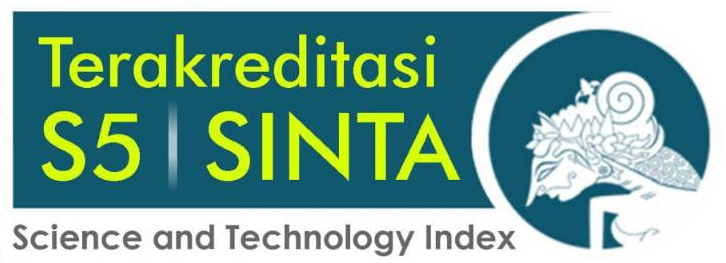Mapping the Potential and the Development of Kendran as a Tourism Village Model in Bali
DOI:
https://doi.org/10.51172/jbmb.v1i3.143Keywords:
tourism village, CBT, potential mapping, institutional, policyAbstract
Purpose: (1) Compile a baseline study of the potential of tourist objects and attractions as well as the readiness of community participation in the Community Based Tourism development model and forms of collaboration with relevant stakeholders; (2) Strengthening institutional and community empowerment in developing Kendran Tourism Village, as a community-based tourism village; and (3) Establishment of cooperation models and policies that can be developed by local governments and related stakeholders.
Research methods: the method of documentation, questionnaires, interviews, and FGD. The collected data was then analyzed using existing condition analysis techniques, ADO-ODTWA assessment, participatory rural analysis (PRA), SWOT analysis, MACTOR analysis, and MULTIPOL analysis.
Findings: Kendran Village as a tourist village, as well as its readiness for development were quite potential. The main policies that need to be prioritized include increasing the capacity of rural communities, strengthening village tourism institutions, packaging attractions / attractions for creating branding, and expanding and maintaining markets.
Implications: the development of a single destination tourist village is the creation of branding, while the policy to increase the capacity of rural communities has the highest value in the multiple destination tourist village scenario. Tourism development policy in the Province of Bali refers to the concept of sustainable and quality tourism, through various multi-sector policies.
References
Darmawan, I Putu Ikka; Ni Wayan Ardini; I Gede Mudana. 2020. Kecak Touristic Performance in Uluwatu Temple: Its Aspects of Vocal Karawitan. Jurnal Bali Membangun Bali, Volume 1, Nomor 1, April 2020. Dikutip dari:
http://ejournal.baliprov.go.id/index.php/jbmb/article/view/109
Departemen Kebudayaan dan Pariwisata dan WWF-Indonesia. 2009. Prinsip dan Kriteria Wisata Berbasis Masyarakat. Direktorat Jenderal Pengembangan Destinasi Pariwisata. Januari.
Elfianita, E. 2011. Pengembangan Pariwisata Berbasis Community Based Tourism (CBT) di Desa Wisata Limbasari Kecamatan Bobotsari, Kabupaten Purbalingga, Jurnal UNY.
Fandeli, C. dan Mukhlison. 2000. Pengusahaan Wisata. Yogyakarta: UGM. http://desakendran.blogspot.com/2014/08/sda-dan-orbitasi.html http://www.bali.bisnis.com
http://www.parekraf.go.id
https://id.wikipedia.org/wiki/ Kendran,Tegallalang,Gianyar
Jeffries, D. J.. Butterworth Heinemann. 2001. Governments and tourism. International Journal of Tourism Research, Volume 4, Issue 6, pages 487–488.
Juniartini, Ni Luh Putu. 2020. Pengelolaan Sampah Dari Lingkup Terkecil dan Pemberdayaan Masyarakat sebagai Bentuk Tindakan Peduli Lingkungan. Jurnal Bali Membangun Bali, Volume 1, Nomor 1, April 2020. Dikutip dari” http://ejournal.baliprov.go.id/index.php/jbmb/article/view/106.
Kartika, T., Fajri, K., dan Kharimah, R. 2017. Pengembangan Wisata Heritage Sebagai Daya Tarik Kota Cimahi. Jurnal Manajemen Resort dan Leisure. Vol. 14, No.2, 35- 46.
Nurhidayati, Sri Endah. 2004. Community Based Tourism (CBT) sebagai Pendekatan Pembangunan Pariwisata Berkelanjutan. Jounal Unair, Surabaya, Airlangga University Press.
Nuryanti, Wiendu. 1993. Concept, Perspective and Challenges. Laporan Konferensi Internasional mengenai Pariwisata Budaya. Yogyakarta. Gadjah Mada University Press.
Permana, I Putu Hendika. 2020. Analisis Media Online sebagai Sumber Informasi Wisatawan Australia dalam Mendapatkan Informasi Virus Corona di Bali. Jurnal Bali Membangun Bali, Volume 1, Nomor 2, Agustus 2020. Dikutip dari:
http://ejournal.baliprov.go.id/index.php/jbmb/article/view/111.
Tim Editor. 2020. “Covid-19 Belum Berlalu, JBMB Harus Terus Berkembang”, Jurnal Bali Membangun Bali, Volume 1, Nomor 2, Agustus 2020.
http://ejournal.baliprov.go.id/index.php/jbmb.
Wahyuntari, Ni Luh Putu; I Gusti Putu Sutarma; Dewa Made Suria Antara. 2020. The Implementation of Marketing Mix to Increase Room Sales. Jurnal Bali Membangun Bali, Volume 1, Nomor 1, April 2020. Dikutip dari: http://ejournal.baliprov.go.id/index.php/jbmb/article/view/108
Downloads
Published
How to Cite
Issue
Section
License
Authors who publish with this journal agree to the following terms:
Authors retain copyright and grant the journal right of first publication with the work simultaneously licensed under a Attribution-NonCommercial-ShareAlike 4.0 International (CC BY-NC-SA 4.0) that allows others to share the work with an acknowledgement of the work's authorship and initial publication in this journal.
Authors are able to enter into separate, additional contractual arrangements for the non-exclusive distribution of the journal's published version of the work (e.g., post it to an institutional repository or publish it in a book), with an acknowledgement of its initial publication in this journal.
Authors are permitted and encouraged to post their work online (e.g., in institutional repositories or on their website) prior to and during the submission process, as it can lead to productive exchanges, as well as earlier and greater citation of published work (See The Effect of Open Access).





